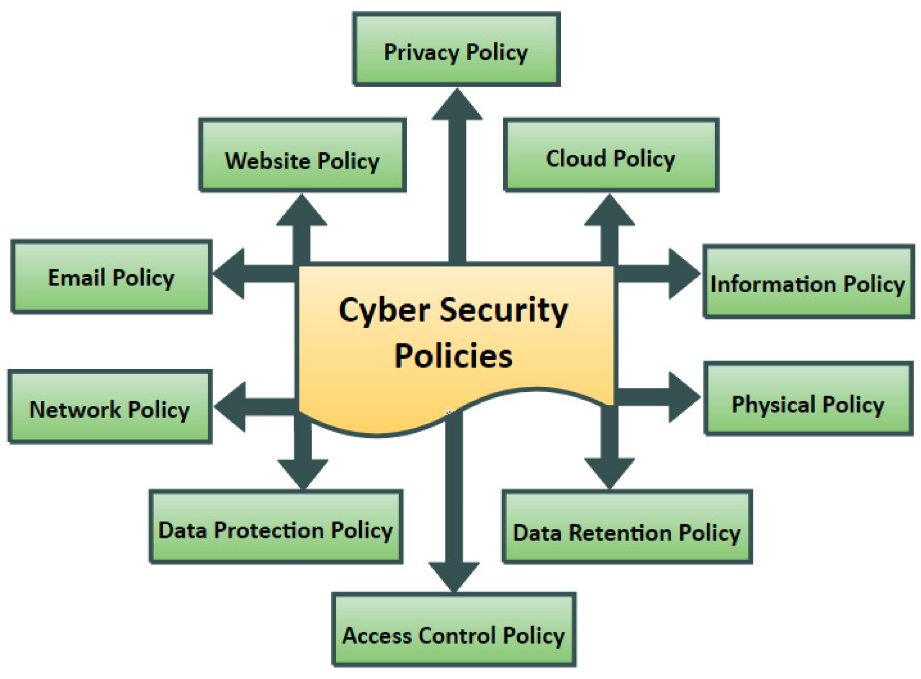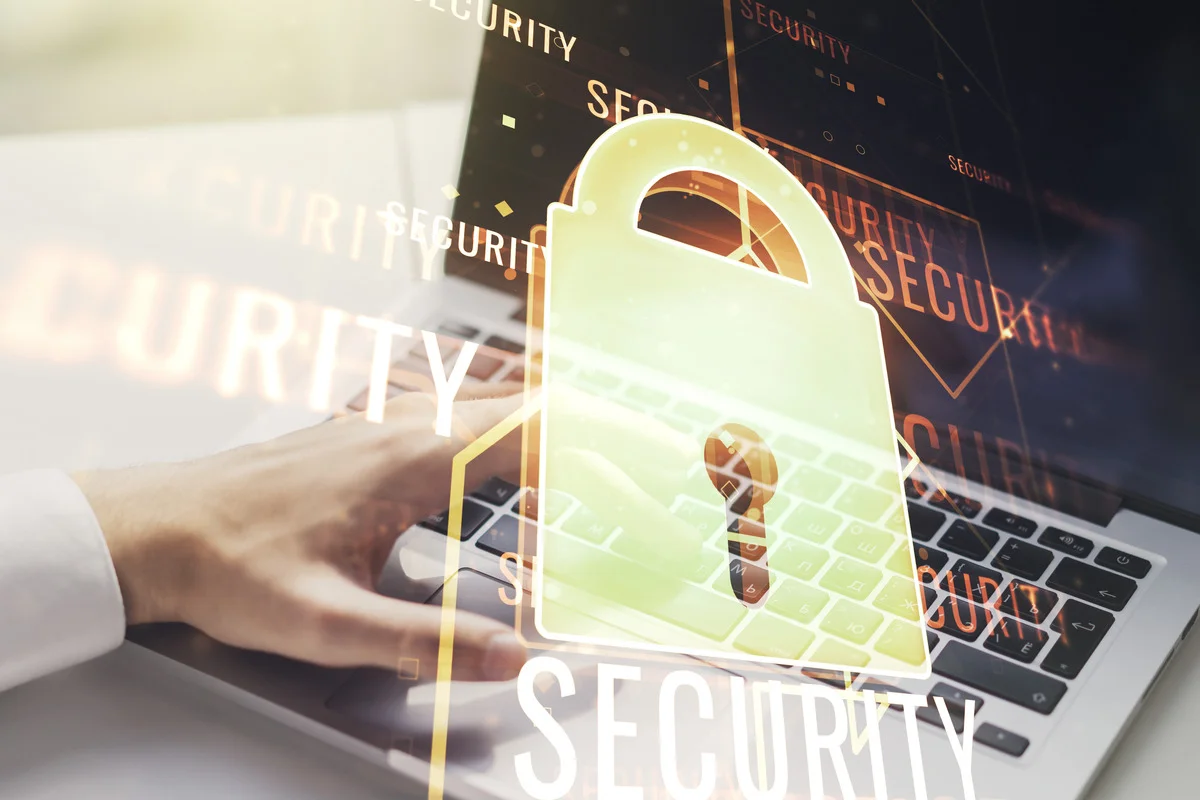As a small business owner, you wear many hats, and cyber security might not always be at the forefront of your mind.
However, in 2024, neglecting this crucial aspect can have devastating consequences. Cyber criminals are constantly evolving their tactics, targeting businesses of all sizes with sophisticated attacks.
A cyber security policy serves as your first line of defence, outlining essential measures to protect your sensitive information, systems, and operations. It’s not just about compliance; it’s about safeguarding your hard-earned success.
This article aims to shed light on the significance of implementing a cyber security policy for small businesses, emphasising the risks associated with cyber threats and the proactive measures required to safeguard sensitive information.
What is a cyber security policy?
A cybersecurity policy is a formal document that outlines the rules and procedures an organisation has in place to protect its information systems and data from cyberattacks. It’s essentially a roadmap that helps everyone in the organisation understand their role in safeguarding sensitive information and minimising the risk of cyber threats.
According to business.gov.au, there are several things to consider when developing a cyber security policy, including:
- Technology and information assets that you need to protect
- Threats to those assets
- Rules and controls for protecting them and your business.
They also provide notes on how your small business team should handle digital assets. There are a few things to note.
- The type of business information that can be shared and where
- Acceptable use of devices and online materials
- Handling and storage of sensitive material.
While we work through the complexities of creating a small business cyber security policy, it’s important to shift our attention to actionable steps by looking at a useful cyber security checklist that will protect and strengthen your digital infrastructure. You can learn more about that by checking out our article about a cyber security checklist for small businesses.
Why you need a cyber security policy for your business
Small businesses are not exempt from cyber threats; in fact, they are often perceived as easier targets due to potentially weaker security measures. Cybercriminals target businesses of all sizes, seeking to exploit vulnerabilities and gain unauthorised access to sensitive data. A well-crafted cyber security policy is the first line of defence for thwarting these threats.
In an era where data breaches make headlines regularly, the legal and reputational consequences of a security breach can be devastating for a small business. A solid cyber security policy not only helps prevent breaches but also establishes a framework for compliance with data protection regulations, shielding the business from legal repercussions and preserving its reputation.
Having a cyber security policy has grown in importance, particularly among Australian small business owners. This is because the Australian Cyber Security Centre has issued a high-level alert regarding the threat of cyberattacks.
Aside from having a cybersecurity policy in place for your business, you may want to look into another aspect of cyber security. Check out our article on the 6 key areas of cybersecurity services that can help you improve your overall digital defence strategy.

What should a cyber security policy include?
A strong cyber security policy combines multiple components to provide comprehensive protection. The following are the key elements that should be included:
1. Password requirements
Setting strong password requirements is one of the easiest and most effective ways to make things safer.
This policy should make it clear how to make strong passphrases, with a focus on using a mix of letters, numbers, and symbols to make them more difficult to guess and less likely to be broken by brute-force attacks.
It should also teach employees the right way to store passphrases, like using secure password managers or encrypted storage solutions, so that they are less likely to be found out. Passphrases need to be updated often, and the policy should say how often they need to be updated to keep up with new security threats.
It is also important to remember different passphrases for each login. This will help lessen the damage that could happen if one area of security is broken and multiple accounts are compromised.
2. Email Security Measures
Email is still one of the main ways that hackers get in. The policy should include the best ways to handle emails, such as how to spot phishing attempts, not click on links or attachments that look sketchy, and quickly report any activity that seems odd.
Also, the policy should tell you how to keep your email security software up-to-date and teach your employees how important it is to keep your email environment safe. By taking these steps, businesses can protect sensitive information and greatly lower the risk of cyber threats that come from email.
3. Rules Around Handling Sensitive Data
It is very important to have clear rules for how to handle sensitive data. This includes rules on how to encrypt data, store it safely, and limit who can see it. To stop accidental leaks, employees should be taught how important it is to handle sensitive information with the utmost care.
In addition, businesses should set up a way to check and record how sensitive data is handled to make sure they are following security rules. Regular security training can help people remember how important it is to follow these steps and keep private data safe.
4. Rules Around Handling Technology
A lot of small businesses use different kinds of technology. The policy should include rules for using company-owned devices, personal devices for work, and how to connect to company networks from outside the office.
The policy should also explain how to report lost or stolen devices so that sensitive data doesn’t get into the wrong hands. It is very important for small businesses to keep their technology policies up-to-date so that they can protect sensitive information from new threats.
5. Standards for Social Media and Internet Access
For a safe and professional work environment, it’s important to set clear rules about how to use social media and the internet.
These standards should spell out what kinds of business information can be shared on social media sites. This way, employees will know to be careful about privacy and confidentiality issues. Staff members should also be told what they can and cannot do when using their work email accounts.
This will help keep the accounts safe and secure. The policy should also say which websites and social media sites can be used during work hours. This will help keep people focused and productive at work while also reducing the risk of security problems.
6. Cyber Incident Response and Plan
If there is a cybersecurity incident, it is very important to respond quickly and effectively so that the damage is limited and business can quickly return to normal.
There should be a clear response plan in place that spells out what to do in the event of a cyber incident. This plan should include a long list of steps, from figuring out what happened and how bad it is to putting containment measures in place and starting the recovery process. For a coordinated and effective response, it’s important to make sure that everyone knows their job duties.
Giving people in the organisation clear tasks makes sure that everyone knows what they need to do to handle a cyberattack, which leads to a more organised and effective solution. By dealing with the incident quickly and in a planned way, businesses can limit the damage that might happen, keep sensitive information safe, and get back to normal operations more quickly.
Conclusion
It is impossible to overestimate the significance of a cyber security policy for small businesses as we navigate the complex digital landscape of 2024. In addition to protecting sensitive data and guaranteeing legal compliance, it acts as a proactive barrier against cyberattacks.
Protecting your company’s data from cyber threats requires a team effort. That’s why, at some point, you may require assistance from professionals, such as Nexa Lab security hardening services.
We provide a wide range of cyber security services, including vulnerability assessments, application security enhancements, incident response planning, custom security strategies, access control and authentication, and security awareness training.




